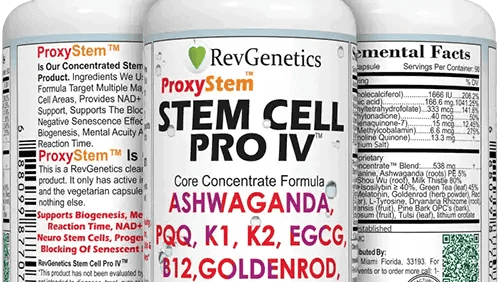Supplements Guide: Debunking 5 Common Myths About Vitamins and Nutritional Supplements
The world of supplements has become increasingly complex as health consciousness grows worldwide. Despite widespread interest in vitamins and nutritional supplements, persistent myths and misconceptions continue to create confusion about their proper use, effectiveness, and safety. Understanding the truth about supplements is crucial for making informed decisions that can genuinely support your health and wellness journey.
Whether you're considering your first supplement or reevaluating your current regimen, navigating the overwhelming array of options and conflicting information can feel daunting. This comprehensive guide addresses the most common supplement myths while providing evidence-based insights to help you make confident, informed choices about nutritional supplementation.
From questioning whether you truly need supplements with a balanced diet to understanding optimal dosing strategies and timing, we'll explore the science behind effective supplementation. By the end of this guide, you'll have the knowledge needed to use supplements safely and effectively as part of your overall wellness strategy.
Understanding the Modern Nutritional Landscape
The relationship between diet and nutritional adequacy has fundamentally changed over the past several decades. While previous generations could reasonably expect to meet most nutritional needs through food alone, multiple factors have altered this equation in ways that make supplementation increasingly relevant for optimal health.
Modern agricultural practices, environmental changes, and lifestyle factors have created a perfect storm of nutritional challenges that even the most well-intentioned healthy eaters may struggle to overcome through diet alone. Understanding these changes provides crucial context for why supplements have become such an important consideration for maintaining optimal health.
Additionally, individual variations in genetics, age, health status, and life circumstances create unique nutritional needs that may be difficult to meet through standardized dietary recommendations. This personalized aspect of nutrition makes the "one-size-fits-all" approach to dismissing supplements particularly problematic.
Myth 1: A Balanced Diet Eliminates the Need for Supplements
The belief that a balanced diet provides all necessary nutrients represents one of the most persistent and potentially harmful myths in nutrition. While this concept held more validity in previous generations, dramatic changes in our food system and environment have fundamentally altered the nutritional landscape we navigate today.
The nutritional content of our fruits and vegetables directly correlates with the quality and mineral content of the soil in which they grow. Unfortunately, decades of intensive farming practices, chemical fertilizer use, and environmental pollution have significantly depleted the mineral content of agricultural soils worldwide. This depletion means that even organic, locally-grown produce often contains substantially fewer nutrients than identical foods grown fifty years ago.
Research documenting this nutritional decline shows that modern fruits and vegetables contain significantly lower levels of essential minerals like iron, zinc, calcium, and magnesium compared to their predecessors. This decline affects not only mineral content but also the production of secondary plant compounds that provide many of the health benefits we associate with plant-based foods.
Beyond soil depletion, our increasingly busy lifestyles make consistently preparing and consuming nutrient-dense meals challenging. Despite our best intentions, many of us rely on processed foods, prepared meals, or convenient options that may lack the nutritional density of freshly prepared whole foods. The gap between nutritional ideals and practical reality often creates deficiencies that supplements can help address.
Individual factors further complicate the picture. Age-related changes in digestion and absorption, genetic variations affecting nutrient metabolism, chronic health conditions, and certain medications can all increase nutritional needs beyond what even an excellent diet might provide. These factors make personalized assessment of nutritional needs increasingly important.
A compelling example is Coenzyme Q10 (CoQ10), an antioxidant essential for cellular energy production. While our bodies naturally produce CoQ10 in youth, production declines significantly with age, and absorption from food sources also decreases. Despite being present in various foods, obtaining therapeutic amounts of CoQ10 through diet alone would require consuming impractical quantities - equivalent to 133 cups of cabbage, 77 cups of broccoli, 921 oysters, or five pounds of beef liver to achieve just 100mg.
This example illustrates why certain nutrients may require supplementation regardless of dietary quality. The quantities needed for optimal health simply cannot be realistically obtained through food sources alone, making targeted supplementation not just helpful but necessary for many individuals.
Myth 2: Daily Multivitamins Can Compensate for Poor Dietary Choices
Many people view multivitamins as nutritional insurance policies, believing these convenient capsules can offset dietary shortcomings and eliminate the need for careful food choices. While multivitamins can provide valuable nutritional support, this "insurance policy" mentality oversimplifies the complex relationship between nutrients and health.
The fundamental flaw in relying on multivitamins to compensate for poor diet lies in the irreplaceable value of whole foods. Fruits, vegetables, whole grains, and other nutrient-dense foods provide not only vitamins and minerals but also fiber, phytonutrients, antioxidants, and countless other compounds that work synergistically to support health. These complex interactions cannot be replicated in a multivitamin capsule.
Furthermore, the sheer variety of available multivitamins creates its own challenges. Hundreds of different formulations exist, each containing varying amounts and combinations of nutrients. This diversity makes it difficult to determine which multivitamin best addresses your specific nutritional needs without proper assessment.
Label interpretation presents another significant challenge. Serving sizes, percentages of daily values, and bioavailability can vary dramatically between products, making meaningful comparisons difficult. What appears to be a comprehensive supplement may actually provide nutrients in forms that are poorly absorbed or in amounts that are inadequate for therapeutic benefit.
The most effective approach involves using laboratory testing to identify specific nutritional deficiencies or suboptimal levels. This targeted strategy allows you to address actual needs rather than taking a scattershot approach with a generic multivitamin. Common deficiencies like vitamin D, vitamin C, zinc, or magnesium may require individual supplementation at doses higher than those typically found in multivitamins.
While a high-quality multivitamin can serve as a nutritional foundation, it should complement rather than replace healthy eating habits. The goal is to use both excellent nutrition and targeted supplementation to achieve optimal health outcomes that neither approach could accomplish alone.
Myth 3: Higher Doses Always Produce Better Results
The "more is better" mentality pervades many aspects of life, and supplements are no exception. However, this approach can be not only ineffective but potentially dangerous when applied to nutritional supplementation. Understanding proper dosing principles is crucial for both safety and effectiveness.
Nutrients follow complex dose-response relationships that vary significantly between different vitamins, minerals, and other compounds. Some nutrients show linear benefits up to certain thresholds, while others reach saturation points beyond which additional amounts provide no benefit. Still others can become harmful or even toxic when consumed in excessive quantities.
Fat-soluble vitamins (A, D, E, and K) present particular concerns for toxicity because they accumulate in body tissues rather than being readily excreted. Vitamin D, while essential for health, can cause serious problems when combined with high-dose calcium supplementation. This combination may lead to kidney stones, bone pain, and in severe cases, heart rhythm abnormalities.
Water-soluble vitamins, while generally safer because excess amounts are excreted in urine, can still cause unpleasant or harmful effects at excessive doses. High-dose niacin can cause flushing and liver damage, while excessive vitamin C may cause digestive upset and interfere with certain medical tests.
Some supplements require precise dosing for optimal effectiveness. Undenatured collagen supplements like UC-II demonstrate this principle clearly. Small, specific doses can provide significant joint pain relief and prove twice as effective as glucosamine and chondroitin combinations. However, higher doses may actually reduce effectiveness or cause opposite effects.
The key to successful supplementation lies in understanding optimal dosing ranges for your specific needs and health goals. This requires research, consultation with knowledgeable healthcare providers, and often some experimentation to find the sweet spot that provides maximum benefit with minimal risk.
Myth 4: Natural Supplements Are Always Safe
The appeal of "natural" supplements stems from the reasonable assumption that substances derived from plants and other natural sources should be inherently safer than synthetic alternatives. While natural origin can indicate certain advantages, it does not guarantee safety or eliminate the need for caution and proper usage.
The fundamental issue with equating "natural" with "safe" lies in the fact that many potentially harmful substances occur naturally. Numerous plants produce toxic compounds as natural defense mechanisms, and even beneficial plant compounds can become problematic at high concentrations or when combined with certain medications.
Dosage remains crucial regardless of whether a supplement is natural or synthetic. Natural compounds can reach toxic levels just as easily as synthetic ones, and the body's response to excessive amounts depends on the chemical structure and biological activity rather than the source of origin.
Drug interactions present another significant concern that many people overlook with natural supplements. Herbal supplements can interact with both prescription and over-the-counter medications in ways that may enhance or reduce medication effectiveness or cause unexpected side effects. These interactions can be just as serious as those between pharmaceutical drugs.
The importance of full disclosure to healthcare providers cannot be overstated. When doctors ask about medications, this inquiry should include all supplements, herbs, and nutritional products you consume regularly. Since many healthcare providers have limited training in supplement interactions, it's also wise to ensure your pharmacist has a complete list of everything you take.
For those concerned about potential interactions, online drug interaction checkers provide valuable resources for screening potential problems. These tools allow you to input all medications and supplements to identify possible interactions before they become problematic.
Quality control represents another consideration with natural supplements. The complexity of plant-derived compounds can make standardization and quality control more challenging than with synthetic alternatives. Choosing reputable manufacturers who provide third-party testing and quality assurance becomes particularly important for natural products.
Myth 5: Timing and Method Don't Matter for Supplement Effectiveness
The convenience of supplement bottles often leads people to focus solely on remembering to take them, overlooking the crucial factors of timing and administration method. However, when and how you take supplements can dramatically affect their absorption, effectiveness, and tolerability.
Different nutrients have varying requirements for optimal absorption and utilization. Some supplements work best on an empty stomach, allowing for maximum absorption without interference from food components. These are typically best taken first thing in the morning before eating, ensuring optimal uptake.
Conversely, other supplements require food for proper absorption or to minimize digestive upset. Taking these supplements with meals not only improves tolerability but often enhances bioavailability through interactions with digestive processes and food components.
Fat-soluble vitamins (A, D, E, and K) represent a special category requiring dietary fat for absorption. Taking these supplements with meals containing healthy fats significantly improves their bioavailability compared to taking them alone or with fat-free foods.
Timing throughout the day can also affect supplement effectiveness and tolerability. Some nutrients may interfere with sleep if taken in the evening, while others may cause digestive upset if taken on an empty stomach. Understanding these patterns allows you to optimize both effectiveness and comfort.
Supplement labels should provide guidance on optimal timing and administration methods. Reputable manufacturers invest in research to determine the best protocols for their specific formulations and will include this information in their dosing instructions.
Following manufacturer recommendations while paying attention to your body's individual responses allows you to fine-tune your supplementation protocol for maximum benefit. What works optimally can vary between individuals, making personal experimentation within safe guidelines valuable for optimization.
The Science of Supplement Absorption and Bioavailability
Understanding how supplements work in your body provides crucial context for making informed choices about products and protocols. Bioavailability - the degree to which nutrients become available for use by your body - varies dramatically between different supplement forms and individual factors.
Several factors influence bioavailability, including the chemical form of the nutrient, presence of other compounds that enhance or inhibit absorption, individual digestive health, and timing of consumption. Some nutrients are naturally well-absorbed, while others require specific conditions or cofactors to achieve meaningful uptake.
Chelated minerals represent an excellent example of how supplement form affects absorption. Minerals bound to amino acids or other organic molecules are often better absorbed than inorganic mineral salts, making them more effective despite potentially higher costs.
Individual variations in digestive health, genetic factors, age, and other medications can significantly impact how well you absorb and utilize different supplements. This individuality explains why some people experience dramatic benefits from certain supplements while others notice little effect from the same products.
Understanding these principles helps explain why quality matters more than price in supplement selection. A less expensive supplement that's poorly absorbed may provide little benefit compared to a higher-quality, more bioavailable alternative that costs more but delivers better results.
Building an Effective Supplement Strategy
Creating an effective supplementation plan requires moving beyond myths and misconceptions toward an evidence-based, personalized approach. This strategy should complement rather than replace healthy lifestyle habits while addressing your specific nutritional needs and health goals.
Laboratory testing provides the most reliable foundation for supplement planning. Comprehensive nutritional panels can identify specific deficiencies or suboptimal levels that may benefit from targeted supplementation. This approach eliminates guesswork and ensures you're addressing actual needs rather than perceived ones.
Starting with basics often proves most effective. Rather than immediately jumping to complex protocols, begin with fundamental nutrients that are commonly deficient or particularly important for your specific circumstances. Vitamin D, magnesium, and omega-3 fatty acids represent common starting points for many people.
Quality assessment becomes crucial when selecting specific products. Look for supplements that provide third-party testing results, clear labeling of active ingredients, appropriate dosing information, and evidence of good manufacturing practices. Avoid products with unnecessary fillers, artificial colors, or unrealistic marketing claims.
Gradual implementation allows you to assess individual responses and identify any supplements that may not agree with your system. Introducing one new supplement at a time makes it easier to attribute any changes - positive or negative - to specific products.
Regular reassessment ensures your supplement strategy remains aligned with your changing needs and circumstances. Nutritional requirements can change with age, health status, stress levels, and life situations, making periodic evaluation important for maintaining optimal protocols.
Working with Healthcare Providers
Integrating supplement use with professional healthcare requires clear communication and collaboration. Many healthcare providers have limited training in nutritional supplementation, making your role in providing information and asking relevant questions particularly important.
Preparing for healthcare visits by documenting all supplements, herbs, and nutritional products you use helps ensure comprehensive care. Include dosages, timing, and duration of use to provide complete information for medical decision-making.
Asking specific questions about supplement interactions with any prescribed medications or medical conditions helps identify potential concerns before they become problematic. Don't assume that healthcare providers will automatically ask about supplement use - be proactive in providing this information.
Seeking providers with additional training in integrative or functional medicine can provide access to more comprehensive guidance on supplement use. These practitioners often have enhanced knowledge of nutritional interventions and can provide more detailed guidance on optimization strategies.
Regular monitoring of relevant biomarkers helps ensure that supplement use is producing intended benefits without causing problems. This might include periodic blood tests to monitor nutrient levels, liver function, or other parameters relevant to your specific supplement protocol.
Safety Considerations and Red Flags
Responsible supplement use requires ongoing attention to safety considerations and awareness of potential warning signs that may indicate problems. While most supplements are generally safe when used appropriately, vigilance helps prevent issues before they become serious.
Understanding potential side effects and contraindications for any supplements you use allows you to recognize problems early. Most reputable supplement manufacturers provide comprehensive safety information, and additional resources are available through medical databases and interaction checkers.
Monitoring your body's responses to supplementation helps identify both positive effects and potential problems. Keep track of any changes in energy, digestion, sleep, or other symptoms that might relate to supplement use.
Recognizing red flags in supplement marketing helps you avoid potentially dangerous or ineffective products. Be wary of supplements that make unrealistic claims, promise miracle cures, or use high-pressure sales tactics.
Staying informed about supplement recalls, safety warnings, and emerging research helps you make informed decisions about continuing or modifying your supplement regimen. Regulatory agencies and reputable health organizations provide updates on supplement safety issues.
Frequently Asked Questions About Supplements
Do I really need supplements if I eat a balanced diet?
Even with a balanced diet, you may need supplements due to depleted soil nutrients, busy lifestyles affecting meal quality, and individual factors like age, genetics, or health conditions. Modern produce contains fewer nutrients than decades ago, making supplementation often necessary for optimal health.
Can a daily multivitamin replace a healthy diet?
No, multivitamins cannot replace a healthy diet. While they can help fill some nutritional gaps, whole foods provide complex nutrients, fiber, and compounds that supplements cannot replicate. Multivitamins should complement, not replace, nutritious eating habits.
Is it true that more supplements always means better results?
No, more is not always better with supplements. Some nutrients become toxic at high doses, while others may lose effectiveness. For example, high-dose vitamin D with calcium can cause kidney issues. Proper dosing based on individual needs is crucial for safety and effectiveness.
Are natural supplements always safe to take?
Natural doesn't automatically mean safe. Natural supplements can still cause toxicity at high doses and may interact with medications. Always inform your healthcare provider about all supplements you take, and consider using drug interaction checkers when starting new supplements.
Does it matter when and how I take my supplements?
Yes, timing and method significantly affect supplement absorption. Some work best on an empty stomach, others with food. Fat-soluble vitamins need to be taken with meals containing fat for proper absorption. Always follow label instructions for optimal effectiveness.
How do I know which supplements I actually need?
The best approach is to get laboratory testing to identify specific nutrient deficiencies. This allows you to target your supplementation rather than taking random vitamins. Work with a healthcare provider to interpret results and create a personalized supplement plan.
Can supplements interact with my prescription medications?
Yes, supplements can interact with both prescription and over-the-counter medications. Always provide your doctor and pharmacist with a complete list of supplements you take. Use drug interaction checkers and consult healthcare professionals before starting new supplements.
What should I look for when choosing quality supplements?
Look for third-party testing, clear labeling of active ingredients, proper dosing information, and reputable manufacturers. Avoid supplements with unnecessary fillers, artificial colors, or unrealistic claims. Choose brands that follow Good Manufacturing Practices (GMP).
How long does it take to see results from supplements?
Results vary by supplement type and individual factors. Some nutrients like B vitamins may show effects within days, while others like vitamin D or CoQ10 may take weeks to months. Consistency is key, and some benefits may be subtle but important for long-term health.
Are expensive supplements always better than cheaper ones?
Price doesn't always indicate quality. Some expensive supplements contain unnecessary ingredients, while some affordable options provide excellent value. Focus on bioavailability, purity, third-party testing, and appropriate dosing rather than price alone when choosing supplements.
The Future of Personalized Supplementation
The field of nutritional supplementation continues to evolve rapidly, with emerging technologies and research methodologies providing new insights into optimal approaches for individual health optimization. Understanding these trends can help you make more informed decisions about your current and future supplementation strategies.
Genetic testing is beginning to provide insights into individual variations in nutrient metabolism, absorption, and requirements. While still in early stages, this technology may eventually allow for highly personalized supplement recommendations based on your unique genetic profile.
Advanced laboratory testing continues to expand, offering more detailed assessments of nutritional status, oxidative stress, inflammatory markers, and other biomarkers relevant to supplement selection and monitoring.
Innovative delivery systems are improving bioavailability and effectiveness of various nutrients. From liposomal encapsulation to time-release formulations, these advances may make certain supplements more effective and convenient to use.
Increased research funding and interest in nutritional interventions are generating more high-quality evidence about optimal supplementation strategies for various health conditions and life stages.
Your Path Forward with Supplements
Making informed decisions about supplements requires moving beyond myths and misconceptions toward evidence-based strategies that align with your individual needs and circumstances. This journey involves ongoing education, careful assessment, and collaboration with knowledgeable healthcare providers.
Starting with proper assessment through laboratory testing provides the most reliable foundation for supplement decisions. Understanding your specific nutritional status eliminates guesswork and allows for targeted interventions that address actual needs.
Choosing quality products from reputable manufacturers ensures you're getting effective, safe supplements that can deliver the benefits you're seeking. Investing in quality often proves more cost-effective than purchasing cheaper products that may be poorly absorbed or ineffective.
Maintaining realistic expectations while staying consistent with your chosen protocol allows time for supplements to work while avoiding disappointment from unreal





